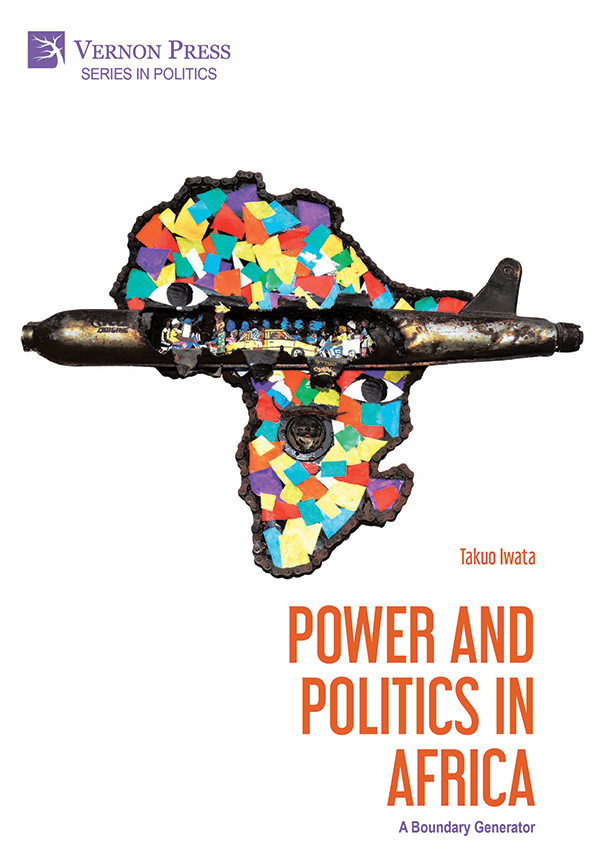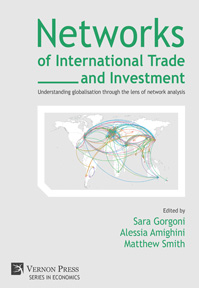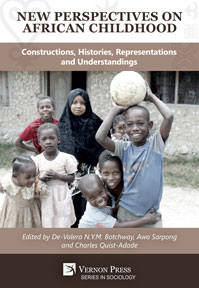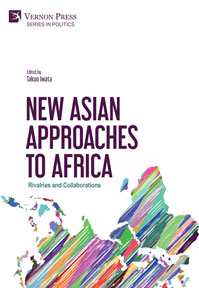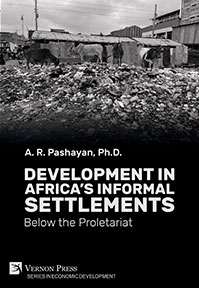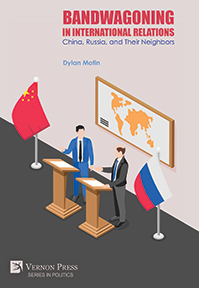Power and Politics in Africa: A Boundary Generator
by Takuo Iwata (Ritsumeikan University, Kyoto, Japan)
Purchase this book
(click here to change currency)
The power to define, regulate, and contest boundaries lies at the very heart of politics. In this richly detailed and well-researched book, Takuo Iwata offers insightful evidence from African international relations to illuminate this dynamic and its implications for democratisation, citizenship and belonging.
Francis B. Nyamnjoh
Professor of Social Anthropology, University of Cape Town
In this book, Takuo Iwata has succeeded in integrating a large amount of material in a way that enables him to bridge the traditional divide between comparative politics and international relations. The result is a work of great importance for anyone who is interested in African politics.
Mamoudou Gazibo
Professor, Department of Political Science
University of Montreal
This is an impressive product of research on power in African politics and international relations. The author insightfully observes the transformation of boundaries in the Global South. He has very effectively used power as a boundary marker in multiple areas of African polity. A very refreshing out-of-the-track work by the author.
Ajay Dubey
President: African Studies Association of India
Professor, School of International Studies & Former Rector (Pro-Vice Chancellor)
Jawaharlal Nehru University
«Power» is the guiding concept of this book that finds a marvellous balance between global overviews about international connections and local case studies at the same time, all by dealing with some of the most important entangled topics of contemporary Africa: democratization, decentralization, border conflicts, international cooperation from a regional to an international scale including Asia. The last chapter adds a new and important aspect of humour in various genres dealing with power.
Ute Fendler
Professor, Romance Literature and Comparative Studies
University of Bayreuth
Iwata gives us a sweeping and innovative approach to Africa’s borders. Borders mediate political possibilities and the placement of power. They constitute both a regulatory device and the shape of regime change. Borders rest at intersections of subnational power relations, and they obscure a more nuanced analysis of Africa’s varied relations with Asia. Decolonization, democratization, and decentralization may have transformed political institutions. But Iwata’s rich field research and deep reflection remind us that we cannot understand Africa’s changing role in a globalized world unless our understanding is grounded in a new theory of power.
Carl LeVan
Professor, Department of Politics, Governance and Economics
American University
Africa’s potential and challenges in the 21st century make it a focal point for global attention. The continent’s political landscape is now more diverse, with a mix of democracy, authoritarianism, peace, and conflict. Understanding the dynamics of African politics is crucial. This comprehensive book delves into African Politics and International Relations, exploring power through the lenses of politics, geography, sociology, and anthropology. It is based on the author’s three decades of fieldwork and research across Africa, Asia, and the West. Ideal for academic scholars, students, diplomats, government officials, journalists, and NGO staff seeking to deepen their understanding of African politics and international relations.
Acknowledgments
List of Abbreviations
List of Tables
List of Figures
Political Map of Africa
Introduction
Chapter 1
Reflection on the Concept of Power as a Boundary Generator in African Politics
Chapter 2
Revisiting Democratization in Contemporary African Politics: Boundaries between Political Regimes
Chapter 3
Political Impact of Decentralization in Africa: Redrawing Boundaries in Local Politics
Chapter 4
Borders in Africa’s International Relations: Reflection on the Borders of the French Colony Upper Volta
Chapter 5
Borders and Regional Security in Local Governments’ Cooperation in West Africa: Boundaries and Bridges
Chapter 6
Transforming Asia–Africa Relations: Old and New Boundaries
Chapter 7
Laughter as a Political Communication Intermediary in Africa: Boundary between Laughing and Being Laughed at
Conclusion: Power and Politics in Africa: Past, Present, and Future
References
Index
Takuo Iwata, Ph.D. is a professor at Ritsumeikan University in Kyoto, Japan, where he teaches politics and international relations with a focus on Africa and Asia-Africa relations. His research spans political power, democratization, decentralization, border issues, South-South Cooperation, and cultural acts in politics. Dr. Iwata has conducted field research primarily in Francophone West Africa, as well as in Western and Asian countries, for over three decades. His notable publications include 'Democratic Transition and Civil Society in Africa' (2004) and 'New Asian Approaches to Africa' (2020).
Political Power, Boundary, Territorial Border, Democratization, Decentralization, Asia–Africa Relations, Laughter in African Politics, History, Culture, and Society
See also
Bibliographic Information
Book Title
Power and Politics in Africa: A Boundary Generator
ISBN
979-8-8819-0038-0
Edition
1st
Number of pages
182
Physical size
236mm x 160mm

